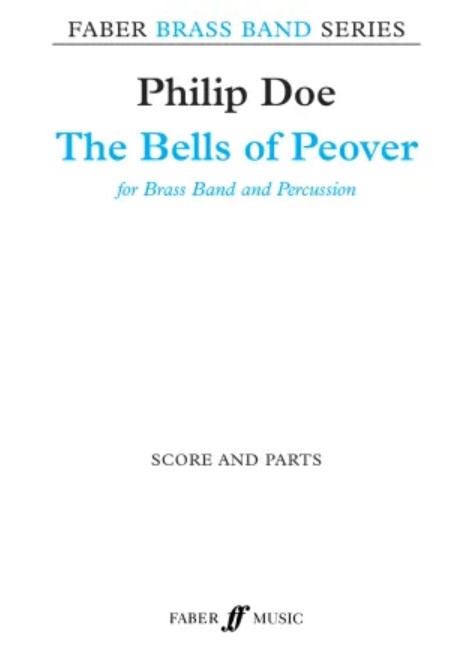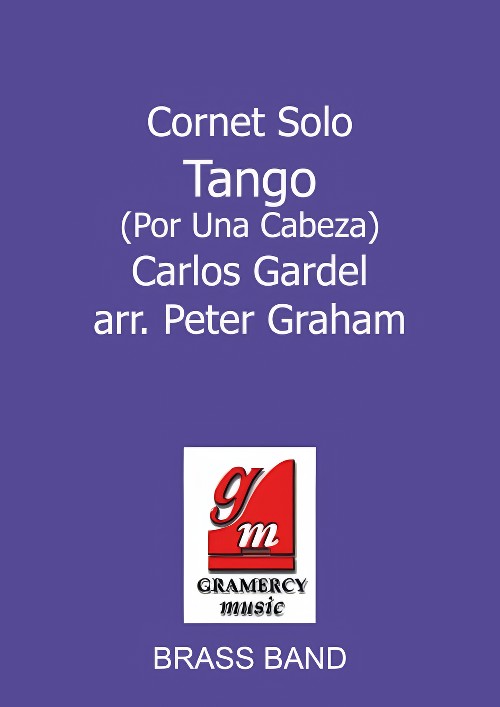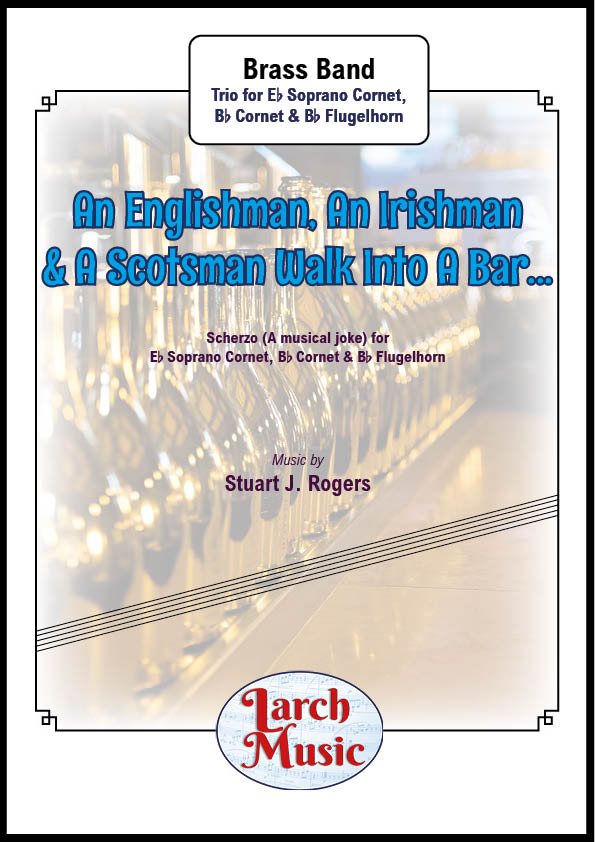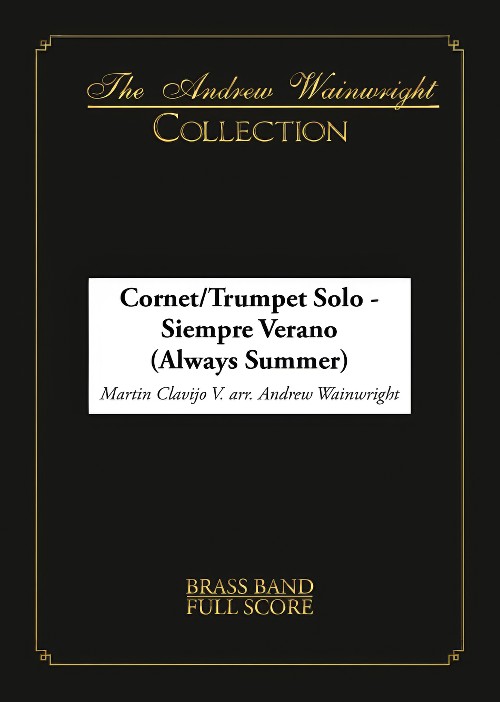Results
-
 £17.99
£17.99The Bells of Peover (Cornet Solo with Brass Band - Score and Parts) - Doe, Philip
The Bells of Peover is a beautiful and lyrical cornet solo, conjuring up a pastoral scene with the distant ringing of church bells. The piece is named after a pub in the Cheshire village of Lower Peover, near Knutsford. Suitable for Youth/4th Section Bands and above. Duration: 4.00
Estimated dispatch 7-14 working days
-
 £40.00
£40.00Fuego! (Solo Cornet with Brass Band - Score and Parts) - Harper, Philip
Composed for Tom Hutchinson of Cory Band, this is a virtuosic cornet solo in the tradition of Harry James, Tico Tico and Charivari. Composed with a Latin groove, the music is in turns sultry then sizzling hot!Duration: 04:00
Estimated dispatch 7-14 working days
-
 £44.95
£44.95Tango (Por Una Cabeza) (Cornet Solo with Brass Band) - Gardel, Carlos - Graham, Peter
Por una cabeza, literally translated as "by a head [of a horse]" in Spanish (meaning a horse winning a race by one head's distance), is one of the most famous and popular Argentine tangos.Composer Carlos Gardel (11 December 1890 - 24 June 1935) was a singer, songwriter and actor, and is perhaps the most prominent figure in the history of tango. The music has appeared in numerous TV and Film soundtracks, perhaps most memorably in the famous dancing scene featuring Al Pacino in Scent of a Woman. This extended arrangement for cornet (or trumpet) incorporates a cadenza and newly written interludes.
Estimated dispatch 7-14 working days
-
 £30.00
£30.00An Englishman, An Irishman & A Scotsman Walk Into A Bar - Trio & Brass Band Sheet Music Full Score & Parts - LM562
COMPOSER: Stuart J. RogersA delightful musical Scherzo (Joke) for the unlikely trio of Eb Soprano Cornet, Bb Cornet & Bb Flugelhorn.A great piece for both soloists and band alike with many a twist and turn.Suitable for 2nd Section and aboveLM562 - ISMN : 9790570005628
In Stock: Estimated dispatch 3-5 working days
-
£29.95
ALABANZA (Cornet Feature with Brass Band Set) - Steven Ponsford
Ian Smale's well-known song 'Father God, I wonder' is set to an exciting Latin rhythm in this cornet feature. The title is the Spanish word for 'praise'.
Estimated dispatch 7-14 working days
-
£34.95
RHAPSODY FOR CORNET AND BAND (Cornet Solo with Brass Band Set) - Ray Bowes
This is a lyrical solo based on the carol 'A Christmas Lullaby'.
Estimated dispatch 7-14 working days
-
£34.95
I'LL NOT TURN BACK (Cornet and Euphonium Duet with Brass Band Set) - Ivor Bosanko
A setting of the challenging song with the words 'I'll not turn back, whatever it may cost'. Written as a duet for Cornet and Euphonium, but can be played by two Cornets or two Euphoniums.
Estimated dispatch 7-14 working days
-
 £38.95
£38.95Siempre Verano (Always Summer) (Cornet/Trumpet Solo with Brass Band - Score and Parts) - Clavijo, Martin - Wainwright, Andrew
A spectacular arrangement of Martin Clavijo J.'s Latin-style trumpet/cornet solo, as performed by Dallas Symphony Orchestra trumpet star Elmer Churampi. This item will show off the soloist's flair and technique to the full. Duration: 6.00
Estimated dispatch 7-14 working days
-
 £29.95
£29.95Alabanza (Cornet Feature with Brass Band - Score and Parts) - Ponsford, Steven
Ian Smale's well-known song 'Father God, I wonder' is set to an exciting Latin rhythm in this cornet feature. The title is the Spanish word for 'praise'.
Estimated dispatch 7-14 working days
-
 £14.95
£14.95Alabanza (Cornet Feature with Brass Band - Score only) - Ponsford, Steven
Ian Smale's well-known song 'Father God, I wonder' is set to an exciting Latin rhythm in this cornet feature. The title is the Spanish word for 'praise'.
Estimated dispatch 7-14 working days

